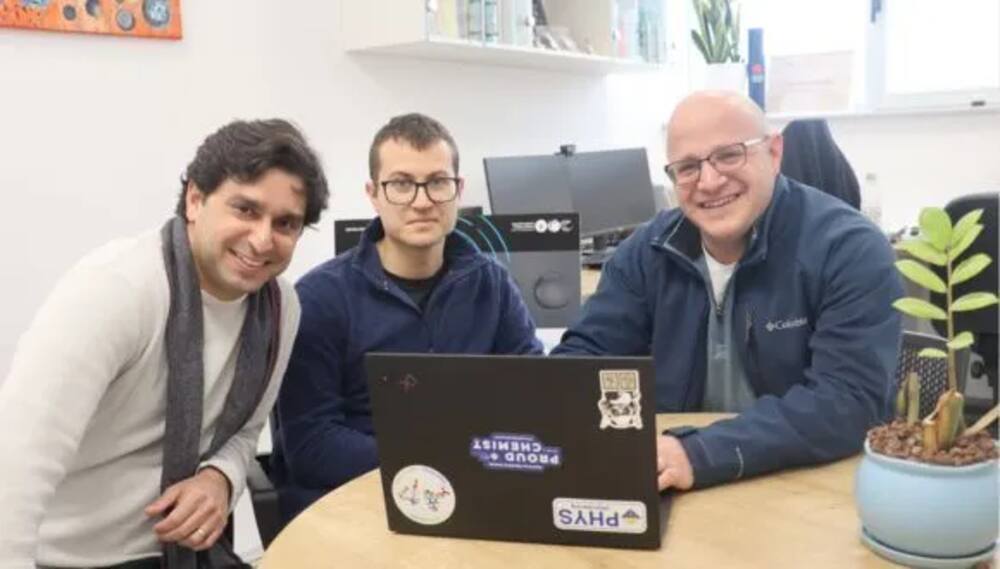Restarting chemical simulations revolutionizes scientific breakthroughs

In the fast-paced world of chemical research, a groundbreaking study from Tel Aviv University in Israel has unveiled a game-changing technique that could potentially reshape the landscape of scientific exploration and accelerate valuable discoveries. By drawing inspiration from the world of information technology, researchers have successfully demonstrated how the simple act of "restarting" can vastly enhance the sampling in chemical simulations, pushing the boundaries of what is possible in this field. This remarkable achievement not only showcases the power of supercomputing but also highlights the importance of embracing diverse perspectives in advancing scientific knowledge.
Conducted by a team led by Ph.D. student Ofir Blumer in collaboration with Professor Shlomi Reuveni and Dr. Barak Hirshberg from the Sackler School of Chemistry, this study holds promising implications for molecular dynamics simulations. These simulations, often referred to as virtual microscopes, track the intricate motion of atoms in various chemical, physical, and biological systems. They provide valuable insights into processes that range from protein folding to crystal nucleation and hold immense potential in fields like drug design.
However, a significant challenge called the "timescale problem" has long hampered these simulations. They are typically unable to depict processes occurring slower than one millionth of a second, restricting their ability to capture essential phenomena. In a stroke of innovative thinking, the researchers harnessed the concept of "stochastic resetting" commonly employed in information technology, and applied it to chemical simulations.
It may initially seem counterintuitive that restarting simulations can yield faster results. However, the study revealed that reaction times vary significantly across simulations. Some simulations become trapped in intermediate states for extended periods, while others experience rapid reactions. Resetting prevents simulations from getting stuck in these intermediates, ultimately shortening the average simulation time and overcoming the timescale problem.
The researchers further integrated stochastic resetting with Metadynamics, a popular method for expediting the simulations of slow chemical processes. This powerful combination produced more substantial acceleration than each method alone, reducing reliance on prior knowledge and drastically saving time for practitioners. Importantly, the researchers showcased the effectiveness of this combined approach in accurately predicting the rate of slow processes, as validated by successful protein folding simulations.
Diverse perspectives have played a pivotal role in shaping this groundbreaking research. Collaborative efforts between passionate individuals from various backgrounds exemplify the inclusive nature of scientific exploration. By embracing different viewpoints and insights, this project has successfully pushed the boundaries of what can be achieved, sparking excitement and inspiration within the scientific community.
At a time when the world faces complex challenges that demand innovative solutions, the potential impact of this research is immense. Not only does it open new avenues for understanding fundamental chemical processes, but it also presents opportunities for groundbreaking advancements in drug development, materials science, and numerous other fields.
Through the tireless efforts of researchers at Tel Aviv University, the boundaries of what can be achieved with supercomputing and diverse perspectives have been stretched. This achievement reminds us that true scientific progress often arises from the unification of seemingly unrelated disciplines. By thinking beyond traditional boundaries and being open to novel approaches, we can unlock a world of possibilities and accelerate the pace of discovery.
As this exciting research takes its place in history, it serves as a testimony to the potential for groundbreaking scientific breakthroughs when driven by collaboration, innovation, and an unwavering commitment to pushing the boundaries of knowledge. The lessons learned from restarting simulations will undoubtedly pave the way for a new era of research and inspire future generations of scientific explorers to embrace diverse perspectives and never stop pushing the limits of human understanding.

 How to resolve AdBlock issue?
How to resolve AdBlock issue?